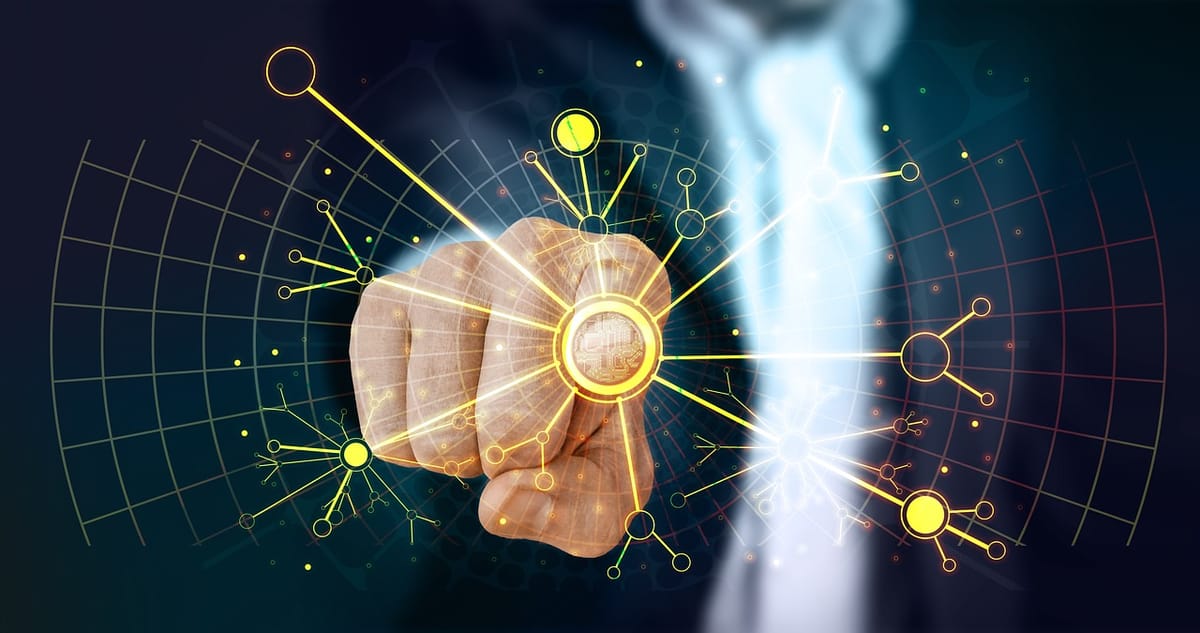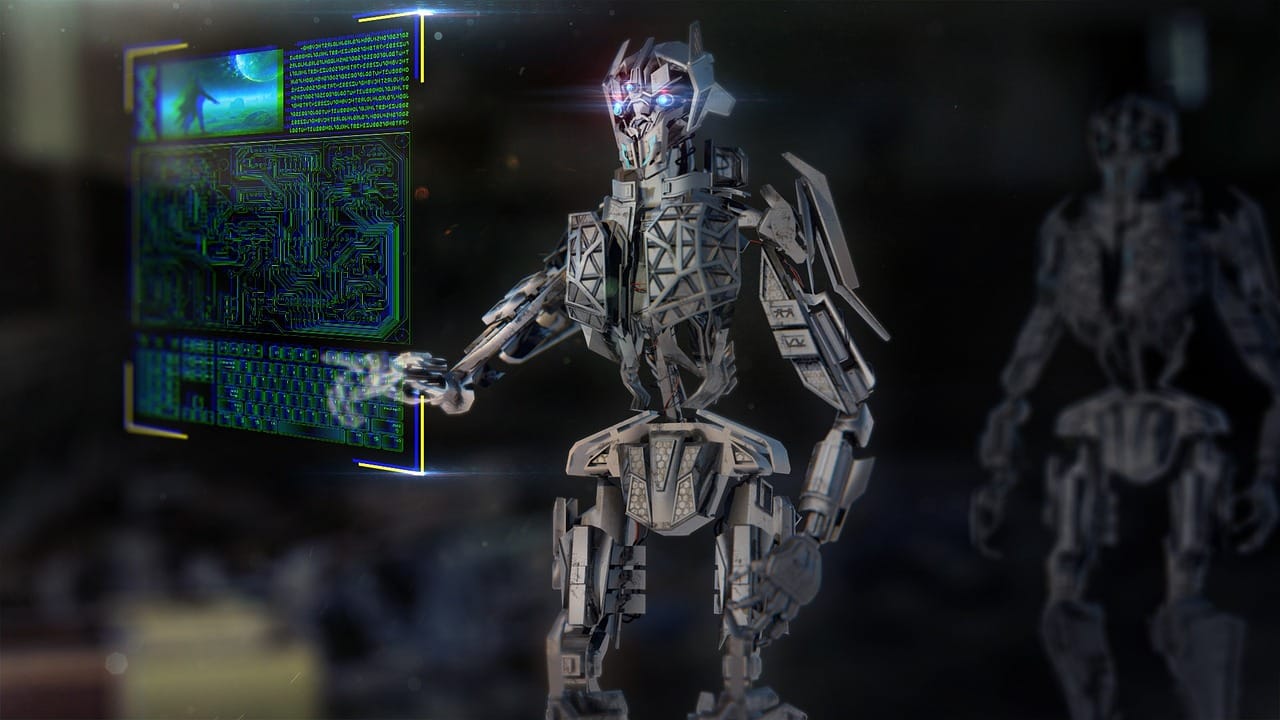The Impact of Artificial Intelligence on the Economy | Navigating Industry Disruption and Job Evolution
Explore the transformative impact of Artificial Intelligence on the economy, navigating industry disruption and job evolution. Stay ahead in the age of AI

Introduction to Artificial Intelligence and its impact on the economy
Artificial Intelligence (AI) has emerged as a transformative force in the global economy, reshaping industries, job markets, and the way businesses operate. As a result of rapid technological innovation, AI is revolutionizing traditional business models and processes, driving unprecedented levels of automation and efficiency. The integration of AI technologies has ushered in a new era of productivity enhancement, economic growth, and workforce transformation. The profound impact of AI on the economy cannot be overstated, as it continues to drive fundamental shifts in how businesses and industries operate.
The widespread adoption of AI across various economic sectors has led to significant advancements in data analytics, predictive modeling, and decision-making processes. Businesses are leveraging AI to gain valuable insights from large volumes of data, enabling them to make more informed strategic decisions. Furthermore, AI-driven automation is streamlining operational workflows, reducing costs, and enhancing overall productivity. As a result, businesses are experiencing improved competitiveness and efficiency, contributing to the overall economic growth.
The transformative power of AI extends beyond individual businesses, influencing entire industries and shaping the future of work. As AI continues to evolve, it is essential for businesses and policymakers to understand its multifaceted impact on the economy and proactively navigate the challenges and opportunities it presents.
The role of AI in reshaping industries
AI is playing a pivotal role in reshaping industries by driving innovation, optimizing processes, and creating new business opportunities. In sectors such as healthcare, finance, manufacturing, and transportation, AI applications are revolutionizing traditional practices and unlocking new levels of efficiency and precision. For instance, in healthcare, AI-powered diagnostics and predictive analytics are enhancing patient care and treatment outcomes. Similarly, in manufacturing, AI-driven automation is streamlining production processes and enabling agile, demand-driven manufacturing operations.

The integration of AI technologies is also fostering the development of innovative products and services, creating new revenue streams and market opportunities. In the retail industry, AI-driven personalized recommendations and predictive analytics are revolutionizing customer experiences and shaping purchasing behaviors. Moreover, AI is enabling the creation of intelligent, autonomous systems, such as self-driving vehicles and smart infrastructure, which have the potential to redefine entire industries and contribute to economic growth.
As industries continue to embrace AI-driven innovation, it is imperative for businesses to adapt their strategies and operations to harness the full potential of these technological advancements. By understanding the specific needs and challenges within their respective industries, businesses can leverage AI to drive sustainable growth, competitive advantage, and industry leadership.
AI's impact on job markets and workforce transformation
The widespread adoption of AI is transforming job markets and driving significant changes in the composition and dynamics of the workforce. While AI-driven automation is streamlining routine and repetitive tasks, it is also creating new opportunities for human workers to focus on higher-value, creative, and complex activities. As a result, the nature of work is evolving, with an increasing emphasis on skills such as critical thinking, problem-solving, and innovation.
However, the integration of AI technologies is also raising concerns about potential job displacement and the need for reskilling and upskilling the workforce. Certain roles and tasks that are highly susceptible to automation may face disruption, necessitating proactive measures to support affected workers through transition programs and training initiatives. Furthermore, the emergence of new job roles, such as AI ethics specialists, data scientists, and automation engineers, underscores the evolving nature of the workforce in the AI-driven economy.
To navigate the workforce transformation driven by AI, businesses and policymakers must prioritize investment in education, training, and skill development programs. By equipping individuals with the necessary technical and soft skills, the workforce can adapt to the changing demands of the economy and seize new opportunities created by AI. Additionally, fostering a culture of continuous learning and adaptability will be essential in ensuring the long-term resilience and competitiveness of the workforce in the era of AI-driven innovation.
Economic growth and productivity enhancement through AI
The integration of AI technologies is propelling economic growth and fostering productivity enhancement across diverse sectors. By leveraging AI-powered analytics and automation, businesses are optimizing their operations, driving cost efficiencies, and accelerating innovation. The ability to extract actionable insights from large datasets, in real-time, is empowering businesses to make data-driven decisions, identify market trends, and capitalize on emerging opportunities.
Furthermore, AI-driven automation is revolutionizing supply chain management, logistics, and production processes, leading to streamlined workflows and enhanced operational efficiency. The deployment of intelligent, autonomous systems is enabling businesses to achieve higher levels of precision, reliability, and scalability, contributing to increased productivity and overall economic output.
In addition to operational improvements, AI is also driving innovation and the development of new products and services, stimulating market demand and consumption. The expansion of AI-driven solutions, such as virtual assistants, personalized recommendations, and predictive maintenance systems, is reshaping consumer behaviors and preferences, creating new avenues for economic growth and market expansion.
The economic impact of AI extends to job creation, as businesses invest in AI-related research, development, and deployment, generating employment opportunities across various skill sets and specializations. These collective contributions underscore the pivotal role of AI in fostering sustainable economic growth, driving productivity enhancement, and shaping the future of work.
AI strategies for businesses and economic sectors
Businesses and economic sectors are increasingly recognizing the strategic importance of AI and are formulating comprehensive strategies to harness its potential. AI strategies encompass a wide range of initiatives, including the adoption of AI-powered analytics, the integration of intelligent automation, and the development of AI-driven products and services. By aligning these strategies with their overarching business objectives, organizations can unlock new sources of value, enhance competitiveness, and drive sustainable growth.
In addition to internal strategies, businesses are also collaborating with AI technology providers, research institutions, and industry partners to accelerate innovation and knowledge sharing. By leveraging external expertise and resources, businesses can overcome technological barriers, access cutting-edge AI solutions, and stay at the forefront of industry developments.
Moreover, AI strategies extend beyond individual businesses and are shaping the direction of entire economic sectors. Governments, industry associations, and regulatory bodies are playing a crucial role in formulating AI policies, standards, and incentives to promote responsible AI adoption, ethical practices, and industry-specific innovation. By fostering a supportive regulatory environment and investing in AI infrastructure, economic sectors can unlock new growth opportunities, drive technological advancements, and ensure the sustainable integration of AI into their operations.
The future of work | Employment trends and skills development
As AI continues to reshape the workforce and job markets, the future of work is characterized by evolving employment trends and the need for continuous skills development. The rise of AI-driven automation and intelligent systems is creating new job roles and career opportunities across various sectors, including data science, machine learning engineering, and AI ethics. At the same time, traditional job roles are undergoing transformation, requiring workers to adapt to the changing demands of the digital economy.

In response to these shifts, businesses and educational institutions are prioritizing skills development initiatives to equip individuals with the competencies required in the AI-driven economy. Programs focused on data analysis, programming, digital literacy, and interdisciplinary collaboration are becoming increasingly essential in preparing the workforce for the future of work. Additionally, soft skills such as adaptability, emotional intelligence, and creativity are gaining prominence, reflecting the evolving nature of work and the importance of human-centric capabilities in the AI-enabled workplace.
Furthermore, employment trends are being influenced by the growing demand for hybrid skill sets that combine technical expertise with domain-specific knowledge. Individuals with the ability to leverage AI technologies to drive innovation, solve complex challenges, and create value across diverse industries are poised to thrive in the evolving job market. As such, fostering a culture of lifelong learning and skills development will be critical in ensuring the workforce remains adaptable, resilient, and competitive in the face of ongoing technological advancements.
Ethical considerations of AI in the economy
The widespread integration of AI in the economy has raised important ethical considerations related to privacy, bias, accountability, and the societal impact of AI-driven decision-making. As businesses and industries leverage AI technologies to automate processes, analyze data, and make strategic decisions, it is essential to uphold ethical standards and ensure that AI systems operate in a transparent, fair, and responsible manner.
One of the key ethical challenges associated with AI is the potential for algorithmic bias, where AI systems inadvertently perpetuate discriminatory outcomes based on historical data and implicit biases. Addressing this challenge requires businesses to implement robust governance frameworks, ethical guidelines, and bias mitigation strategies to promote fairness and equity in AI-driven decision-making.
Moreover, the ethical implications of AI extend to the collection, storage, and utilization of personal data, raising concerns about privacy, consent, and data security. Businesses must prioritize data privacy and protection measures, ensuring that AI applications adhere to regulatory standards and respect individual rights. By integrating privacy-by-design principles and ethical data practices, businesses can build trust with consumers and safeguard against potential ethical breaches.
Additionally, the societal impact of AI and its implications on employment, human-AI collaboration, and the distribution of economic benefits necessitate ongoing ethical deliberation and stakeholder engagement. By fostering open dialogue, interdisciplinary collaboration, and inclusive decision-making processes, businesses and policymakers can navigate the ethical complexities of AI in the economy and promote its responsible and sustainable integration.
Navigating labor market disruption and AI applications
The integration of AI applications is disrupting labor markets, necessitating proactive measures to mitigate potential job displacement and support workforce adaptation. While AI-driven automation is streamlining operational processes and driving efficiency, it is essential for businesses and policymakers to prioritize workforce reskilling, upskilling, and transition assistance programs to facilitate smooth labor market transitions.
To navigate labor market disruption, businesses can leverage AI applications to identify emerging skill demands, forecast talent needs, and design targeted training programs to bridge skills gaps. By harnessing AI-powered analytics, businesses can gain valuable insights into workforce trends, competency assessments, and talent development opportunities, enabling them to align their human capital strategies with the evolving demands of the digital economy.
Furthermore, governments and educational institutions play a crucial role in facilitating workforce adaptation by investing in education, vocational training, and lifelong learning initiatives. By fostering partnerships between industry and academia, policymakers can ensure that educational curricula and training programs are aligned with the skill sets required in the AI-enabled workforce, empowering individuals to thrive in the face of technological disruption.
Moreover, fostering a culture of innovation, entrepreneurship, and intrapreneurship can create new avenues for economic participation and job creation, enabling individuals to leverage AI technologies to drive value creation, business innovation, and sustainable economic growth. By embracing a proactive approach to labor market disruption, businesses, governments, and educational institutions can navigate the challenges and opportunities presented by AI applications and foster a resilient, adaptable, and skilled workforce.
Data analytics and AI in business
The integration of data analytics and AI in business is revolutionizing decision-making processes, operational workflows, and strategic planning, driving unprecedented levels of efficiency and innovation. Businesses are leveraging AI-powered data analytics to extract actionable insights, identify patterns, and predict future trends, enabling them to make informed, data-driven decisions that drive competitive advantage and sustainable growth.
AI-driven data analytics is empowering businesses to gain a deeper understanding of consumer behavior, market dynamics, and operational performance, facilitating targeted marketing strategies, personalized customer experiences, and agile, demand-driven operations. By harnessing the power of AI to process and analyze vast amounts of data, businesses can uncover valuable opportunities for optimization, expansion, and innovation.
Furthermore, the integration of AI in data analytics is enabling businesses to automate repetitive tasks, accelerate data processing, and enhance the accuracy and reliability of decision-making processes. By deploying AI-driven predictive modeling, businesses can anticipate market fluctuations, mitigate risks, and seize emerging opportunities, positioning themselves for sustained competitiveness and growth.
In addition to operational improvements, AI-powered data analytics is fostering a culture of innovation and continuous improvement, enabling businesses to drive product development, service innovation, and process optimization. By leveraging AI technologies to unlock the full potential of their data assets, businesses can achieve higher levels of efficiency, agility, and customer-centricity, laying the foundation for sustainable success in the digital economy.
Adapting to the evolving economy shaped by AI
As AI continues to exert a profound impact on the economy, businesses, policymakers, and individuals must proactively adapt to the evolving landscape shaped by technological innovation and automation. The transformative power of AI extends beyond individual businesses, influencing entire industries, job markets, and the future of work. By embracing AI strategies, fostering skills development, and navigating ethical considerations, businesses can harness the full potential of AI to drive sustainable economic growth, productivity enhancement, and industry leadership.
The future of work is characterized by evolving employment trends, the integration of AI applications, and the imperative for continuous skills development. By prioritizing education, training, and adaptive learning initiatives, individuals can position themselves for success in the AI-enabled workforce, leveraging their skills and expertise to thrive in the face of technological disruption.
Furthermore, the responsible integration of AI in the economy requires a steadfast commitment to ethical practices, privacy protection, and transparent decision-making. By upholding ethical standards and fostering inclusive dialogue, businesses and policymakers can navigate the complexities of AI applications and ensure their responsible and sustainable integration into the economic landscape.
In conclusion, the impact of AI on the economy presents a wealth of opportunities for innovation, growth, and advancement. By embracing the transformative potential of AI, businesses and individuals can navigate industry disruption, drive economic prosperity, and shape a future characterized by responsible, ethical, and inclusive AI-driven innovation.




